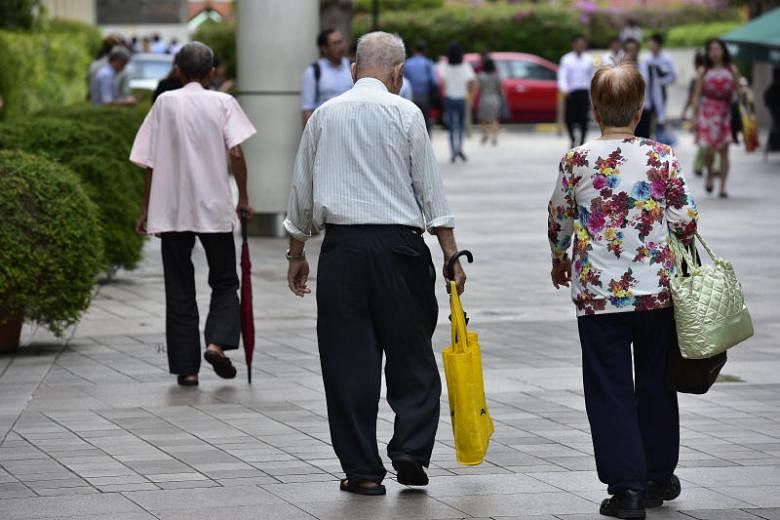SINGAPORE - While the physical health of older people here has taken a hit, their mental health has improved.
The prevalence of clinically depressive symptoms in older Singaporeans fell from 15 per cent in 2009 to 12 per cent in 2017.
This was accompanied by a decrease in the proportion of respondents who felt somewhat or mostly lonely - from 51 per cent in 2009 to 34 per cent in 2017.
"A potential reason is that the befriending programmes are working - the Silver Generation Office has about 4,000 volunteers knocking on doors of disadvantaged elderly who tend to be living alone," said Dr Angelique Chan, the executive director of Duke-NUS Medical School's Centre for Ageing Research and Education.
And while more older Singaporeans are living alone - 7.3 per cent in 2017, up from 6.2 per cent in 2009 - it is not necessarily a yardstick for measuring how lonely people feel.
Of those who live alone, 40 per cent report having feelings of loneliness, just slightly more than 33 per cent of those who live with somebody, said Dr Rahul Malhotra, the Centre's head of research.
"If you're living with somebody, you have more chances of being left out in daily things," he added.
"If you're living alone, maybe you are used to it and found your own mechanisms to deal with it... It's a misnomer that living alone equates to loneliness."
However, researchers also found that being lonely was linked to lower levels of healthcare use, such as visiting doctors and hospitals.
This could be due to such people being more socially withdrawn, not wanting to be a burden to others, and language difficulties.
The slight dip in the proportion of elderly people with depressive symptoms could also be that due to the fact that the 2017 cohort is more educated than its 2009 counterpart.
"They're more likely to be working and interacting with people," said Dr Chan.
The study also found that stronger social networks were associated with a lower likelihood of depression and loneliness.
Mr Andrew da Roza, a therapist at Promises Healthcare, said the improvement in these figures could be a result of initiatives from voluntary welfare organisations and the Ministry of Social and Family Development to socially engage and provide more psychological support for the elderly and their caregivers.
"There have been other government initiatives to provide better health and financial support - so these too may be assisting the elderly," said Mr da Roza.
"There is also the ageing population effect, which may mean that there are more 'young seniors' (aged between 60 and 65) who may be in better mental, physical and financial health and able to work, increasing their daily social interaction."


